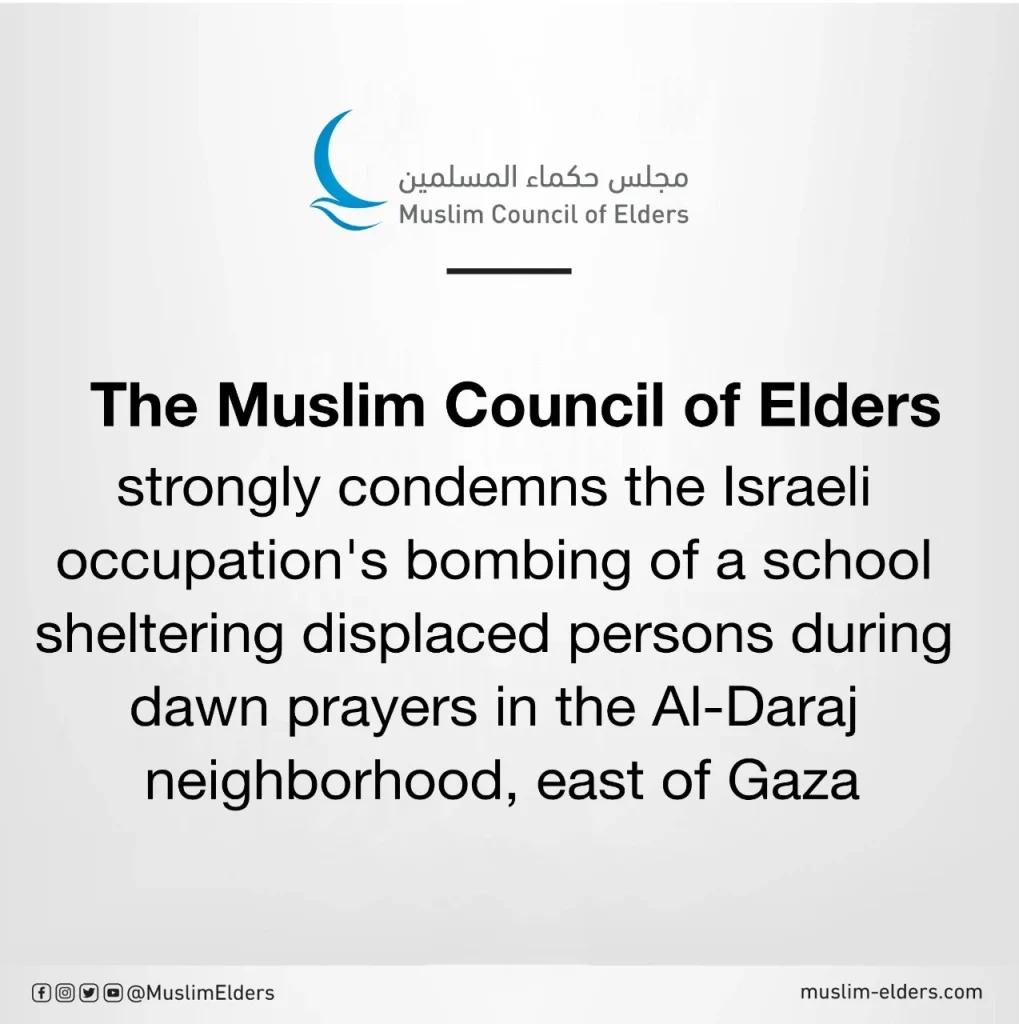Faith Pavilion at COP29 Aims to Mobilize Moral and Spiritual Voices to Find Effective Solutions for the Climate Crisis
Faith Pavilion at COP29 Unites Ethical and Religious Voices to Inspire Hope and Promote Collective Action to Overcome Climate Challenges
Faith Pavilion at COP29 Aims to Sustain COP28 Initiatives and Strengthen Collective Spiritual Efforts for Climate Solutions
As the global climate crisis escalates, the Faith Pavilion, organized by the Muslim Council of Elders, is set to play a pivotal role at the United Nations Climate Change Conference (COP29), to be hosted in Baku, Azerbaijan, this November. Building on the success of its inaugural edition at COP28, which was held last year in the United Arab Emirates, and which saw widespread global participation and international acclaim, the Faith Pavilion will once again bring together a diverse coalition of 97 organizations representing 11 different religions and sects. This collective will offer unique moral and ethical perspectives to enhance climate action.
The Faith Pavilion will reunite this global coalition to provide religious and moral insights on strengthening climate efforts through a comprehensive program, including over 40 discussion sessions exploring the integration of spirituality and ethics into climate action. Discussions will address restoring spiritual roots to tackle the climate crisis, exploring non-economic impacts of climate change through religious perspectives while empowering students to address environmental challenges through faith teachings, the role of women’s leadership in achieving climate justice, fostering partnerships for climate adaptation, and harnessing indigenous and interfaith wisdom.
At COP29, the Faith Pavilion will also explore other topics related to sustainable lifestyles, faith-inspired eco-villages, innovative climate financing, and intergenerational dialogue. The Pavilion will highlight the principles outlined in the ” Call of Conscience: Abu Dhabi Joint Statement for Climate,” within an interactive framework that will make the Faith Pavilion a hub for transformative ideas and collaborative solutions. These efforts will be driven by shared values and the commitment of faith communities worldwide. The Pavilion will emphasize the shared dedication of these diverse communities to addressing environmental challenges and explore how spiritual teachings can inspire urgent climate action.
The Secretary-General of the Muslim Council of Elders, Judge Mohamed Abdelsalam, underscored the pressing need for climate action to adopt innovative solutions grounded in ethical values and scientific knowledge. He emphasized the crucial role that religious and intellectual leaders play as a powerful moral voice capable of guiding individuals and communities toward embracing the principles of justice and sustainability. Judge Abdelsalam noted that the Faith Pavilion at COP29 builds on the significant success of its inaugural edition at COP28 in Dubai and aims to ensure the continuity of COP28’s initiatives while strengthening the collective spiritual effort in addressing climate challenges.
Judge Abdelsalam extended his gratitude to the Higher Committee that oversaw preparations for COP28 for its support of the Faith Pavilion initiative, organized by the Muslim Council of Elders during COP28. He commended the committee’s commitment to maintaining this essential initiative as a permanent platform for dialogue among thought and religious leaders, with the objective of identifying effective solutions to the pressing challenges posed by climate change.
In a significant development, the United Nations Environment Programme (UNEP) will, for the first time, present a series of scientific sessions at the Faith Pavilion. Sessions will focus on bridging the gap between science and religion, offering advanced insights into the environmental crisis while grounding these discussions in ethical and spiritual frameworks. The collaboration underscores the importance of integrating scientific knowledge with moral imperatives to address the climate crisis.
The Faith Pavilion at COP29 will also continue to frame climate change as a profound religious and ethical issue. Religious leaders from the 11 represented faiths and sects will issue a call to global policymakers, urging them to consider the spiritual and moral consequences of environmental neglect and take immediate, decisive action to protect the planet. This ethical framing is expected to influence broader COP29 negotiations, encouraging decision-makers to incorporate moral considerations into their future climate strategies.
Recognizing the vital role of young people in the fight against climate change, the Faith Pavilion will also prominently feature youth leaders from various faith backgrounds who will bring fresh perspectives and highlight the need for intergenerational collaboration in addressing the climate crisis. Additionally, the Pavilion will showcase successful youth and community-driven initiatives led by faith-based organizations, demonstrating the tangible impact of grassroots climate action.
The Faith Pavilion at COP29 aims to bridge the gap between spiritual, scientific, and policy-driven approaches by fostering collaboration among the participating organizations, religious leaders, scientists, and policymakers. The Pavilion will also seek to address potential challenges and enhance the effectiveness of faith-driven climate advocacy. This collaborative spirit will be crucial in ensuring that the voices of faith communities are meaningfully integrated into global climate policy.
Moreover, the Pavilion will deliver a strong message of unity and hope, emphasizing the potential for collective action to overcome the climate crisis. Participants at the Faith Pavilion will call on the global community to embrace a sustainable relationship with nature, grounded in ethical principles of stewardship, compassion, and justice.
As the world gathers in Baku, the Faith Pavilion will undoubtedly serve as a beacon of spiritual leadership, guiding the way toward a more just and sustainable future for humanity.
About the Faith Pavilion at COP29
The Faith Pavilion at COP29, co-hosted by the Muslim Council of Elders and the Faith Pavilion Coalition, is a continuation of an interfaith initiative that began at COP28 in Dubai, UAE. It aims to infuse moral and ethical perspectives into global climate discussions. As an integral part of the United Nations Climate Change Conference, the Pavilion serves as a dedicated platform for Faith-Based Organizations and Religious Institutions from various major religions to advocate for climate justice and inspire meaningful action.










